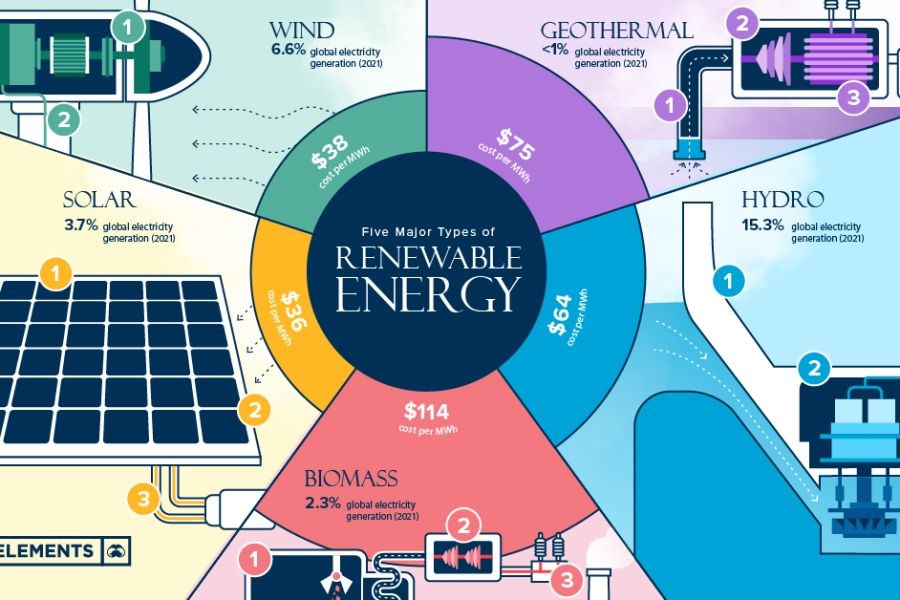New Zealand's contribution to global tech development is often overshadowed by its picturesque landscapes and thriving agriculture. However, it's time to shine a spotlight on this dynamic nation’s role in the tech arena, a sector that is not only growing but also transforming the way the world views Kiwi innovation. In this article, we delve into five surprising facts about New Zealand’s impact on global tech development, offering insights for sustainability consultants and businesses eager to explore new frontiers.
How It Works: New Zealand's Tech Ecosystem
New Zealand's tech sector is a powerhouse of innovation, driven by a blend of government support, academic excellence, and entrepreneurial spirit. According to the Ministry of Business, Innovation and Employment (MBIE), the tech sector contributes over NZD 16.2 billion to the country's GDP, highlighting its significant role in the economy. This dynamic ecosystem is characterized by a focus on sustainability, with a commitment to developing technologies that not only cater to current needs but also ensure a sustainable future.
One of the key pillars of this ecosystem is the New Zealand Technology Industry Association (NZTech), which fosters collaboration between tech companies, educational institutions, and the government. This collaborative approach ensures that the tech sector remains resilient, innovative, and aligned with global trends.
Case Study: Xero – Revolutionizing Accounting Software
Problem: Small businesses across the globe faced challenges managing their finances efficiently, often relying on outdated and cumbersome accounting systems.
Action: Xero, a New Zealand-based company, introduced a cloud-based accounting software that simplified financial management for small businesses. By leveraging cloud technology, Xero provided real-time financial insights, making it easier for businesses to manage their finances effectively.
Result: Xero expanded rapidly, serving over 3 million subscribers worldwide. Its innovative approach to accounting software has not only transformed how businesses manage their finances but also positioned New Zealand as a leader in fintech innovation.
Takeaway: Xero’s success underscores the potential for New Zealand tech companies to disrupt global markets. By focusing on user-centric solutions and leveraging cutting-edge technology, Kiwi businesses can achieve significant global impact.
Innovative Tech for Sustainable Development
New Zealand’s tech industry is uniquely positioned to drive sustainable development. With a strong emphasis on green technology, Kiwi innovators are creating solutions that address environmental challenges while promoting economic growth. For instance, companies like Rocket Lab are pioneering the development of more sustainable space exploration technologies, reducing the environmental footprint of space launches.
According to Stats NZ, investment in green technology has increased by 35% over the past five years, reflecting a growing commitment to sustainability. This trend is not only beneficial for the environment but also enhances New Zealand’s reputation as a leader in sustainable innovation.
Case Study: Solarcity – Harnessing the Power of the Sun
Problem: High energy costs and environmental concerns prompted a need for cleaner, more affordable energy solutions.
Action: Solarcity, a New Zealand-based company, developed innovative solar energy solutions that make renewable energy accessible to homeowners and businesses. By offering solar systems with no upfront costs, Solarcity enabled more Kiwis to switch to renewable energy.
Result: Solarcity has installed solar systems across New Zealand, significantly reducing carbon emissions and energy costs for its customers.
Takeaway: Solarcity’s approach to renewable energy highlights the potential for sustainable tech solutions to drive positive environmental and economic outcomes. By prioritizing sustainability, New Zealand tech companies can contribute to a greener future.
Contrasting Perspectives: The Debate on Tech's Role in Sustainability
The role of technology in sustainability is a topic of ongoing debate. On one hand, technology offers powerful tools for addressing environmental challenges. On the other, it raises concerns about resource consumption and environmental impact. Let’s explore both sides of this debate:
Advocate Perspective
- Efficiency Gains: Technology enhances efficiency, reducing waste and optimizing resource use. For example, AI-driven systems can optimize energy consumption in buildings, leading to significant reductions in carbon footprint.
- Innovation in Renewable Energy: Tech innovations are driving the development of renewable energy solutions, such as advanced solar panels and wind turbines, contributing to a more sustainable energy landscape.
Critic Perspective
- Resource Consumption: The production and disposal of tech devices can contribute to environmental degradation due to resource extraction and electronic waste.
- Digital Divide: While technology has the potential to drive sustainability, access to tech solutions is not evenly distributed, potentially exacerbating social inequalities.
Middle Ground: By prioritizing sustainable tech development and ensuring equitable access to technology, we can harness the benefits of tech while mitigating potential downsides.
Common Myths & Mistakes in Tech Development
Despite its potential, there are several misconceptions about New Zealand’s role in global tech development. Let’s debunk some of these myths:
Myth: "New Zealand is too small to have a significant impact on global tech."
Reality: Despite its size, New Zealand has produced globally successful tech companies like Xero and Rocket Lab, demonstrating that innovation is not limited by geography.
Myth: "Tech development in New Zealand is only focused on agriculture."
Reality: While agriculture is a significant part of the economy, the tech sector is diverse, encompassing fintech, renewable energy, and more.
Myth: "Tech innovation is only for large companies."
Reality: Small and medium enterprises (SMEs) are at the forefront of tech innovation in New Zealand, leveraging agile strategies to disrupt markets.
These myths underscore the need for a broader understanding of New Zealand’s tech capabilities and the diverse opportunities available for innovation and growth.
Future Trends & Predictions
The future of tech development in New Zealand is bright, with several trends poised to shape the industry:
1. AI and Machine Learning: The adoption of AI and machine learning is set to accelerate, with applications in everything from agriculture to healthcare. By 2028, it’s predicted that 70% of New Zealand businesses will integrate AI solutions into their operations, driving efficiency and innovation.
2. Green Technology: As sustainability becomes a global priority, investment in green technology will continue to grow. New Zealand’s commitment to carbon neutrality by 2050 will drive the development of sustainable tech solutions.
3. Remote Work Technologies: The shift towards remote work is expected to persist, leading to increased demand for collaboration tools and cybersecurity solutions. New Zealand’s tech companies are well-positioned to develop innovations that support this trend.
Conclusion: Embracing New Zealand’s Tech Potential
New Zealand’s role in global tech development is characterized by innovation, sustainability, and a commitment to creating positive change. By leveraging its unique strengths and fostering collaboration, New Zealand can continue to drive technological advancements that benefit both the economy and the environment.
For sustainability consultants and businesses, the key takeaway is clear: Embrace New Zealand’s tech potential and explore opportunities for collaboration and innovation. By doing so, you can contribute to a brighter, more sustainable future.
What's Next? Stay informed about the latest trends in New Zealand's tech sector by subscribing to industry newsletters, attending tech conferences, and engaging with local tech communities. Your insights and actions can make a significant impact on the future of tech development.
People Also Ask (FAQ)
- How does New Zealand's tech sector impact global sustainability? New Zealand's tech sector focuses on sustainable solutions, contributing to global sustainability efforts through innovations in renewable energy, efficient resource management, and green technology.
- What are the biggest misconceptions about New Zealand's tech industry? A common misconception is that New Zealand's tech industry is solely focused on agriculture. In reality, it encompasses a wide range of sectors, including fintech, renewable energy, and space technology.
- What are the best strategies for leveraging New Zealand's tech potential? Collaborating with local tech companies, investing in sustainable tech solutions, and fostering innovation through government and industry partnerships are effective strategies for leveraging New Zealand's tech potential.
- What upcoming changes in New Zealand could affect the tech industry? By 2026, policy updates aimed at achieving carbon neutrality could drive increased investment in green technology, shaping the future of the tech industry.
- Who benefits the most from New Zealand's tech innovations? New Zealand's tech innovations benefit a wide range of stakeholders, including businesses seeking sustainable solutions, consumers looking for efficient technologies, and communities aiming for a greener future.
Related Search Queries
- New Zealand tech industry trends
- Kiwi innovation in global tech
- Sustainability in New Zealand technology
- Future of tech in New Zealand
- New Zealand green technology companies
- Impact of tech on New Zealand economy
- New Zealand fintech success stories
- AI development in New Zealand
- Remote work technology in New Zealand
- New Zealand tech industry challenges

































TamiMott2
8 months ago